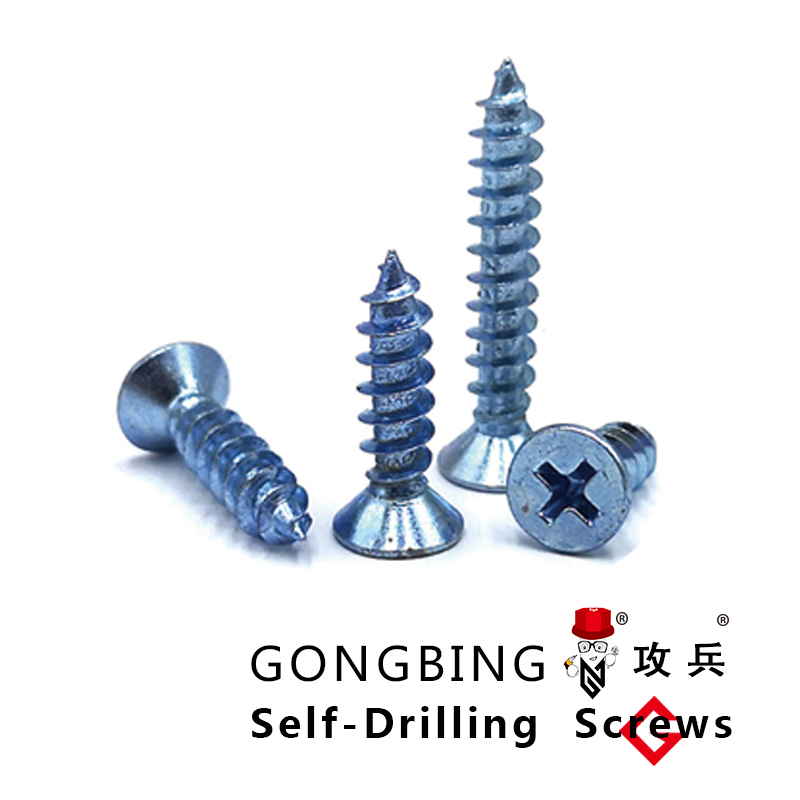Benefits of Using Zinc Plated Self Tapping Screws in Various Applications
Understanding Zinc Self-Tapping Screws A Comprehensive Guide
When it comes to fastening materials together, screws are indispensable tools that are widely used across various industries. Among the multitude of screw types available in the market, zinc self-tapping screws stand out due to their unique features and advantages. This article will delve into the characteristics, applications, benefits, and considerations surrounding zinc self-tapping screws.
What Are Zinc Self-Tapping Screws?
Zinc self-tapping screws are specialized fasteners coated with zinc to enhance their corrosion resistance while featuring a pointed end designed to create its own thread during installation. This eliminates the need for pre-drilling a pilot hole, making them incredibly efficient for various applications. They are typically made from steel, which provides strength and durability, with the zinc coating offering protection against rust and environmental elements.
Features and Variants
Self-tapping screws are available in several types, including sheet metal screws and lag screws, among others. The choice of screw often depends on the material being fastened—be it wood, metal, or plastic. Zinc plating is particularly advantageous for indoor or outdoor projects exposed to moisture, as it helps prevent corrosion.
1. Coating The zinc coating can vary in thickness—bright, galvanized, or mechanical plating—affecting durability. Thicker coatings provide better corrosion resistance. 2. Thread Design Different thread designs (fine, coarse, or a combination) cater to specific applications and materials. Fine threads are best for thin materials, while coarse threads provide better grip in thicker materials.
3. Drive Type Zinc self-tapping screws come with various drive types, including Phillips, square, and Torx. The choice of drive affects how the screw can be driven into the material and the torque it can handle.
Applications of Zinc Self-Tapping Screws
These screws are incredibly versatile, making them suitable for various applications, including
1. Construction and Framing Used in building frameworks, particularly in metal-to-metal connections where pre-drilling might be cumbersome. 2. Electronics Often utilized in assembling electronic devices where precision and a secure connection are critical. 3. Automotive Employed in car manufacturing to fasten components without complicated setups. 4. Furniture Assembly Commonly used in assembling furniture, providing a strong bond without the risk of splitting the material.
zinc self tapping screws

Advantages of Zinc Self-Tapping Screws
2. Cost-Efficiency Although slightly more expensive than regular screws, their durability and time-saving nature often make them a more economical choice in the long run.
3. Corrosion Resistance The zinc coating ensures longevity, particularly in environments prone to moisture, reducing maintenance and replacement costs.
4. Strength and Durability Steel construction combined with a self-tapping design yields screws that can handle significant loads and stress.
Considerations for Use
While zinc self-tapping screws offer several benefits, there are considerations to keep in mind
1. Material Compatibility Ensure that the selected screw type is compatible with the materials being joined. Not all self-tapping screws are suitable for every application. 2. Environment In environments with high humidity or exposure to salty air, consider using screws with thicker zinc coatings or alternative materials (like stainless steel) for enhanced corrosion resistance.
3. Sizing Choosing the right length and diameter is crucial. A screw that is too short may not hold firmly, while one that is too long might penetrate too far and damage the underlying material.
Conclusion
Zinc self-tapping screws are a reliable and efficient solution for various fastening needs. Their ease of use, combined with strong performance characteristics, makes them a preferred choice in many industries. Whether you’re a professional contractor or a DIY enthusiast, understanding the benefits and applications of these screws will enable you to make informed decisions for your projects. Always consider the specific requirements of your task, and select the appropriate screw type to ensure the longevity and stability of your assembly.
-
Weatherproof Plastic Expansion Anchors for OutdoorNewsJun.06,2025
-
Sustainability in the Supply Chain: Eco-Friendly TEK Screws ProductionNewsJun.06,2025
-
Load-Bearing Capacity of External Insulation FixingsNewsJun.06,2025
-
Double Head Bolts: Enhancing Efficiency in Industrial MachineryNewsJun.06,2025
-
Corrosion Resistance in Chipboard Screws: Coatings for Wholesale DurabilityNewsJun.06,2025
-
Butterfly Toggle Bolts : Enhancing Structural ResilienceNewsJun.06,2025
